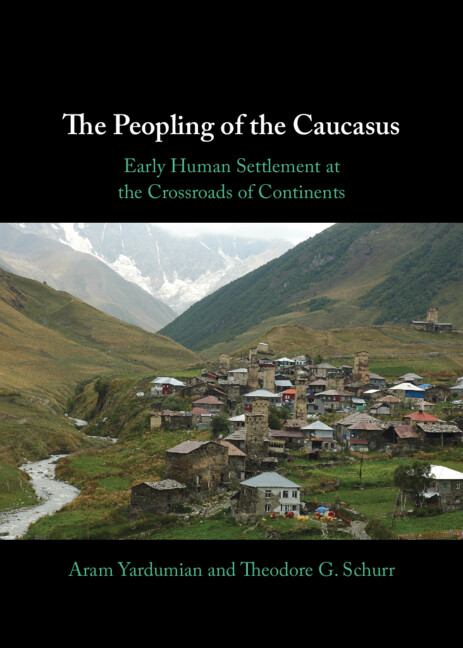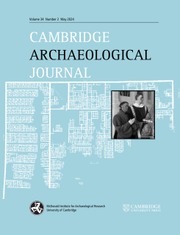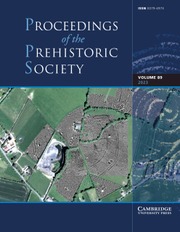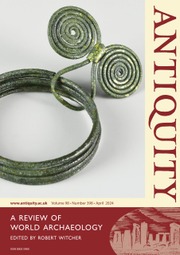The Peopling of the Caucasus
Located at the crossroads of Europe, Asia, and the Middle East, the Caucasus region has played a critical role in the dissemination of languages, ideas, and cultures since prehistoric times. In this study, Aram Yardumian and Theodore Schurr explore the dispersal of human groups in the Caucasus beginning in the Palaeolithic period. Using evidence from archaeology, linguistics, and anthropological genetics, they trace changes in settlement patterns, cultural practices, and genetic variation. Highlighting the region's ecological diversity, natural resources, and agricultural productivity, Yardumian and Schurr reconstruct the timings and likely migration routes for human settlement following the Last Glacial Maximum, as well as the possible connections to regional economies for these expansions. Based on analysis of archaeological site reports, linguistic relationships, and genetic data previously published separately and in different languages, their synthesis of the most up to date evidence opens new vistas into the chronology and human dynamics of the Caucasus' prehistory.
- Compiles and analyzes the population genetics literature related to the Caucasus and neighboring regions
- Show how diverse methodologies can interact and contribute to the same story, and occasionally also conflict
- Brings together evidence from studies in six different languages that would otherwise be inaccessible to many readers
Reviews & endorsements
‘This is a timely and valuable resource on the Caucasus, and an important first in its thorough and up-to-date coverage of the geographical setting, genetics, archeology, and linguistics. Especially welcome is its grounding in current best work on linguistic relationships and prehistory. Clear and readable even on technical matters, it can be recommended to both scholarly and general readers.' Johanna Nichols, University of California, Berkeley
Product details
January 2025Adobe eBook Reader
9781009520218
0 pages
This ISBN is for an eBook version which is distributed on our behalf by a third party.
Table of Contents
- 1. Prolegomenon
- 2. Geography and Ecology
- 3. Paleoanthropology
- 4. Modern Human Entry into the Caucasus
- 5. Neolithic Revolution
- 6. The Caucasus Chalcolithic and Bronze Age
- 7. Linguistic Diversity in the Caucasus
- 8. Genetic History of the Caucasus
- 9. A Synthetic View of the Peopling of the Caucasus
- 10. Further Research into the Peopling of the Caucasus Studies
- Glossary.









